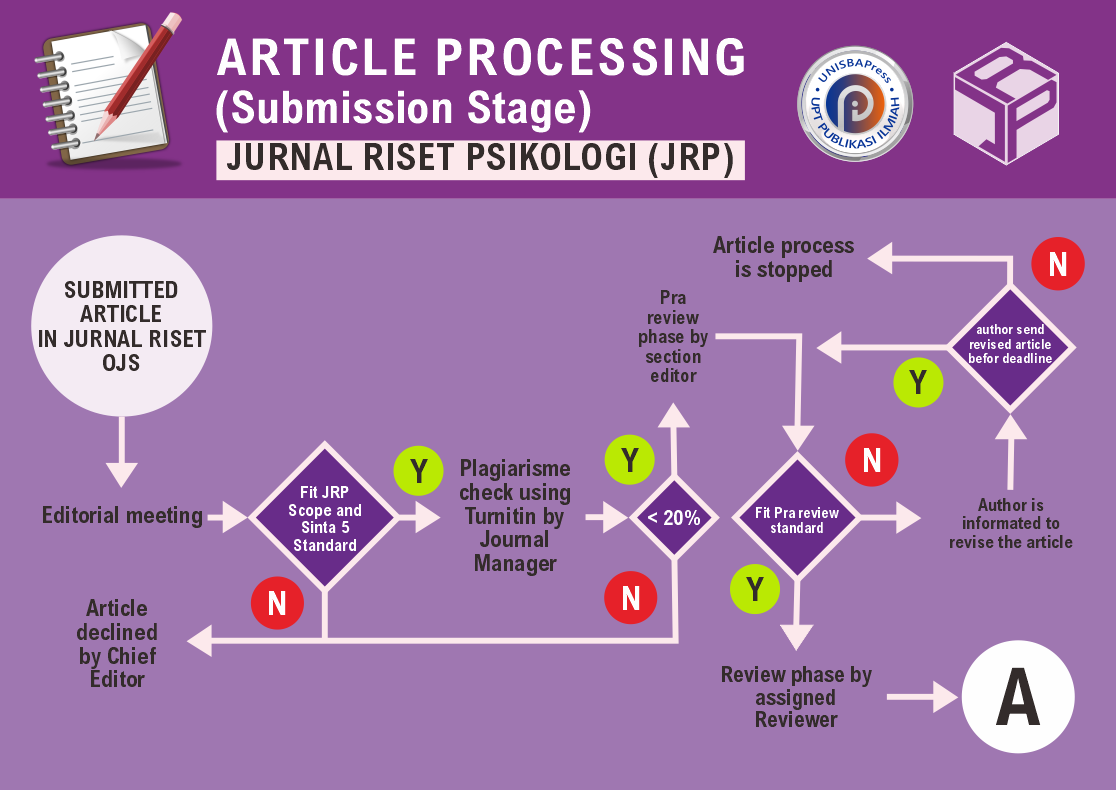Pengaruh Skills Group Dialectical Behavior Therapy terhadap Penurunan Disregulasi Emosi Ibu
DOI:
https://doi.org/10.29313/jrp.v3i1.1849Keywords:
Skills group dialectical behavior therapy, disregulasi emosi, kekerasan terhadap anakAbstract
Abstract. Violence committed against children is still a problem that has not been fully resolved until now. There are still many cases of violence experienced by children and continue to increase every year. There are various research results which state that violence against children is often carried out by the closest people around the child their mothers. One factor that cause mothers to commit violence against their children is emotional dysregulation, namely difficulties in controlling emotional responses. Until now, emotion regulation skills are still underutilized as an intervention in parenting. Skills Group Dialectical Behavior Therapy is a psychological intervention developed by Marsha Linehan to deal with problems related to emotional dysregulation and behavioral disorders. The purpose of this study was to determine and obtain empirical data regarding the effect of giving skills group dialectical behavior therapy to reduce emotional dysregulation experienced by mothers who commit violence against children. This study used a one group pretest and posttest design with a total of 4 research subjects. Measurements on maternal emotional dysregulation using the Difficulties in Emotion Regulation Scale (DERS). Data analysis in this study used Wilcoxon Signed-Ranks. The results showed a significance value of 0.068 (p<0.1) which indicates that there is an effect of giving Skills Group Dialectical Behavior Therapy to decrease emotional dysregulation in mothers who abuse children.
Abstrak. Kekerasan yang dilakukan kepada anak masih menjadi permasalahan yang belum bisa teratasi sepenuhnya hingga saat ini. Masih banyak kasus kekerasan yang dialami anak dan terus mengalami peningkatan setiap tahunnya. Terdapat berbagai hasil penelitian yang menyatakan bahwa kekerasan terhadap anak seringkali dilakukan oleh orang-orang terdekat salah satunya dilakukan oleh ibu. Salah satu faktor yang menyebabkan ibu melakukan kekerasan terhadap anak adalah disregulasi emosi, yaitu kesulitan dalam mengontrol emosi. Hingga saat ini keterampilan meregulasi emosi masih kurang dimanfaatkan sebagai intervensi dalam pengasuhan. Skills Group Dialectical Behavior Therapy merupakan suatu intervensi psikologi yang dikembangkan oleh Marsha Linehan untuk menangani permasalahan terkait disregulasi emosi tersebut. Tujuan penelitian ini adalah untuk mengetahui dan mendapatkan data empirik mengenai pengaruh pemberian skills group dialectical behavior therapy untuk menurunkan disregulasi emosi pada ibu yang melakukan kekerasan terhadap anak. Penelitian ini menggunakan one group pretest dan posttest design dengan jumlah subjek penelitian sebanyak 4 orang. Pengukuran terhadap disregulasi emosi ibu dilakukan dengan menggunakan Difficulties in Emotion Regulation Scale (DERS). Analisis data dalam penelitian ini menggunakan Wilcoxon Signed-Ranks. Hasil penelitian menunjukkan nilai signifikansi sebesar 0,068 (p<0,1) yang menunjukkan bahwa terdapat pengaruh dari pemberian Skills Group Dialectical Behavior Therapy terhadap penurunan disregulasi emosi pada ibu yang melakukan kekerasan terhadap anak.
References
Kemen PPA. Issn 2089-3523. Pemberdaya Peremp dan Perlindungan Anak. 2020;
Hikmawati E, Rusmiyati C. Kajian kekerasan terhadap anak. Media Inf Penelit Kesejaht Sos [Internet]. 2016;40(1):25–38. Available from: https://ejournal.kemensos.go.id/index.php/mediainformasi/article/view/2281/1128
KPAI. Hasil Survei Pemenuhan dan Perlindungan Anak Pada Masa Pandemi Covid-19. www.kpai.go.id. 2020;
Pratama R, Rahmayanti I. Tindak Pidana Kekerasan Terhadap Anak Yang Menyebabkan Kematian Dilakukan Oleh Ibu Kandungnya. Supremasi Huk. 2020;16(2):114–23.
Kemen P. Mengakhiri Kekerasan terhadap Anak dan Perempuan di Indonesia. 2017;
Cahayanengdian A, Sugito. Perilaku Kekerasan Ibu Terhadap Anak Selama Pandemi Covid 19. J Obs J Pendidik Anak Usia Dini [Internet]. 2021;6(3):1180–9. Available from: https://obsesi.or.id/index.php/obsesi/article/view/1686/pdf
Anggraini S, Asih MF. Hubungan parenting stres dengan perilaku kekerasan pada anak. J Inov Penelit. 2022;2(8):2747–54.
Gavin H, Porter T. Female Aggression. BlackWell: John Wiley & Sons, Ltd; 2015.
Smith AL, Cross D, Winkler J, Jovanovic T, Bradley B. Emotional Dysregulation and Negative Affect Mediate the Relationship Between Maternal History of Child Maltreatment and Maternal Child Abuse Potential. J Fam Violence. 2014;29(5):483–94.
Warmingham JM, Rogosch FA, Cicchetti D. Intergenerational maltreatment and child emotion dysregulation. Child Abus Negl [Internet]. 2020;102(December 2019):104377. Available from: https://doi.org/10.1016/j.chiabu.2020.104377
Zalewski M, Lewis JK, Martin CG. Identifying novel applications of dialectical behavior therapy: considering emotion regulation and parenting. Curr Opin Psychol [Internet]. 2018;21:122–6. Available from: https://doi.org/10.1016/j.copsyc.2018.02.013
Thompson RA. Emotion dysregulation: A theme in search of definition. Dev Psychopathol. 2019;31(3):805–15.
Gratz KL, Roemer L. Multidimensional Assessment of Emotion Regulation and Dysregulation: Development, Factor Structure, and Initial Validation of the Difficulties in Emotion Regulation Scale. J Psychopathol Behav Assess. 2004;26(1):41–54.
Martin CG, Roos LE, Zalewski M, Cummins N. A Dialectical Behavior Therapy Skills Group Case Study on Mothers With Severe Emotion Dysregulation. Cogn Behav Pract [Internet]. 2017;24(4):405–15. Available from: http://dx.doi.org/10.1016/j.cbpra.2016.08.002
Frazier SN, Vela J. Dialectical behavior therapy for the treatment of anger and aggressive behavior: A review. Aggress Violent Behav [Internet]. 2014;19(2):156–63. Available from: http://dx.doi.org/10.1016/j.avb.2014.02.001
Jamilian HR, Malekirad AA, Farhadi M, Habibi M, Zamani N. Effectiveness of group dialectical behavior therapy (based on core distress tolerance and emotion regulation components) one expulsive anger and impulsive behaviors. Glob J Health Sci. 2014;6(7):116–23.
Linehan MM. Cognitive-behavioral treatment of borderline personality disorder. New York: The Guilford Press; 1993.
Salsman NL, Linehan MM. Dialectical-behavioral therapy for borderline personality disorder. Prim Psychiatry. 2006;13(5):51–8.
Eisner L, Eddie D, Harley R, Jacobo M, Nierenberg AA, Deckersbach T. Dialectical Behavior Therapy Group Skills Training for Bipolar Disorder. Behav Ther [Internet]. 2017;48(4):557–66. Available from: https://doi.org/10.1016/j.beth.2016.12.006
Linehan MM, Wilks CR. The course and evolution of dialectical behavior therapy. Am J Psychother. 2015;69(2):97–110.
Zalewski M, Maliken AC, Lengua LJ, Gamache Martin C, Roos LE, Everett Y. Integrating dialectical behavior therapy with child and parent training interventions: A narrative and theoretical review. Clin Psychol Sci Pract. 2020;(May):1–14.
Seniati L, Yulianto A, Setiadi BN. Psikologi Eksperimen. 7th ed. Jakarta: Indeks; 2014.













